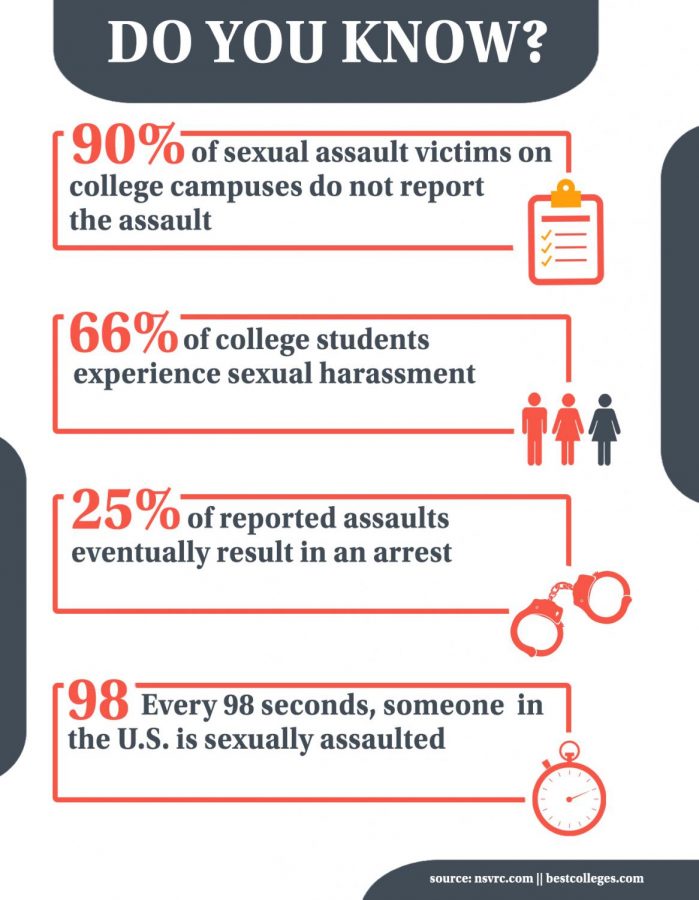Stand up for victims
November 19, 2019
Sexual assault and domestic violence awareness is no longer fresh news. It is a serious topic because of the severe consequences for all involved. Although more conscious efforts are being made to spread awareness of this form of abuse, victims have a hard time coming to terms with their situation and seeking help.
According to the University of Michigan, 53% of victims of domestic violence were abused by a current or former significant other and 60% of acquaintance rapes on college campuses occur in casual or steady dating relationships.
These numbers could be significantly reduced through bystander intervention, which all college students should be educated on and familiar with.
Bystander intervention has to do with watching out for people you suspect could be in abusive situations.
It can help someone to be more self-assured in the choices they need to make. Our actions and concerns could be what encourages a victim to leave the relationship.
Last week around midnight I was making a phone call in front of the library during my study break. I was then approached by a classmate who was also studying in the library and while we were talking, I received a text from my concerned friend who thought I was in danger.
Even though this was a false alarm situation, I felt more secure staying outside at that time knowing that my friend was looking out for me.
But not enough people try to intervene like my friend did. According to The Conversation, bystanders will avoid intervening in harassment situations because they either think that it is not their problem and someone else will step in or because they don’t know how to.
It is for this reason that the ULM has provided the sexual assault training program. Despite the time-consuming nature of this activity, it is beneficial.
It teaches bystanders the warning signs to look out for in a person we feel is in an abusive situation. It also guides students on the step-by-step approaches to take to help victims.
The university also has a counseling center where victims can go if they are in denial of their situation.
Our school is taking great actions toward ending sexual assault on our campus, but there is always more that can be done.
To get results, students are going to have to take the training program seriously and be willing to intervene, support and report.



